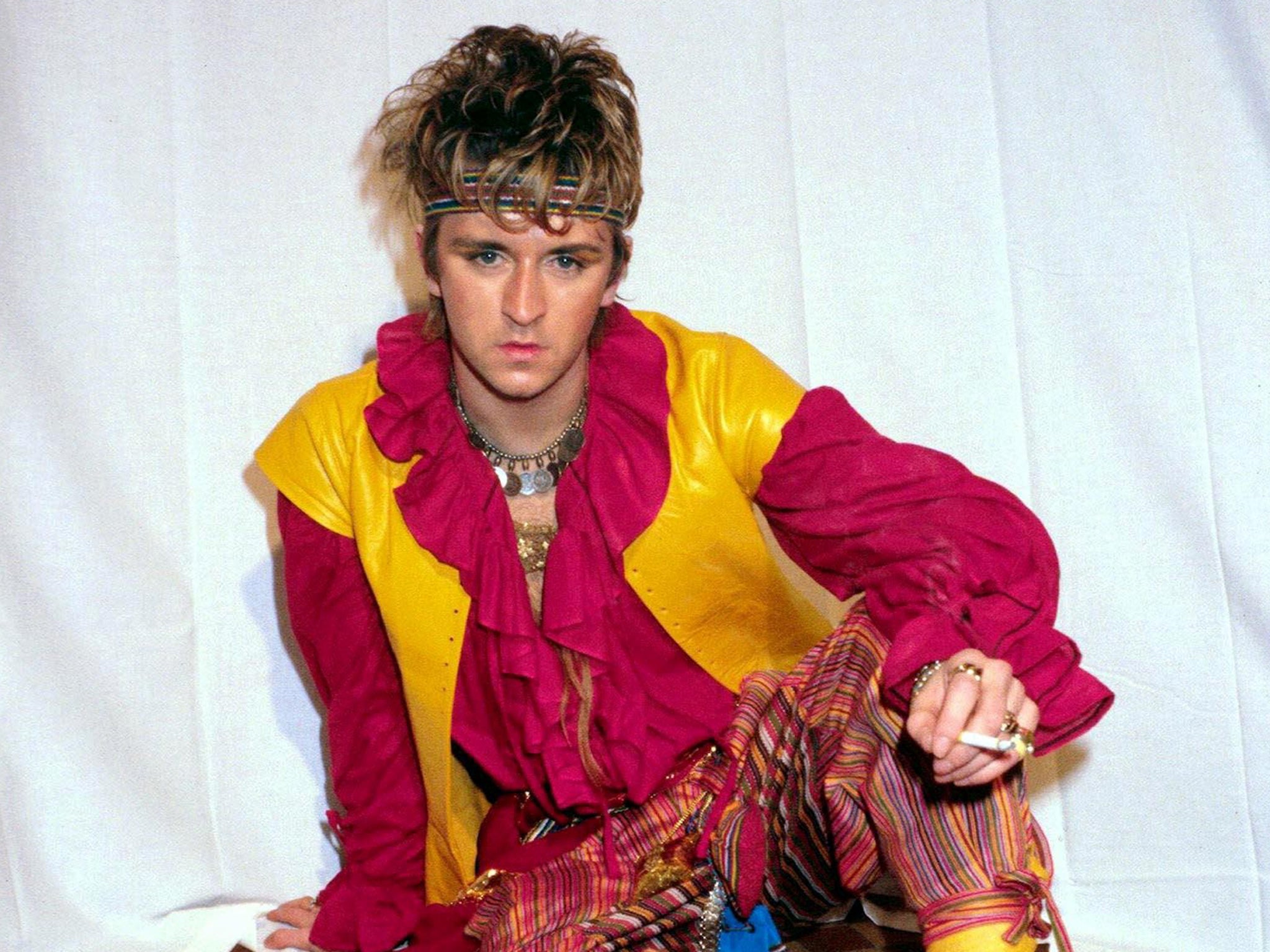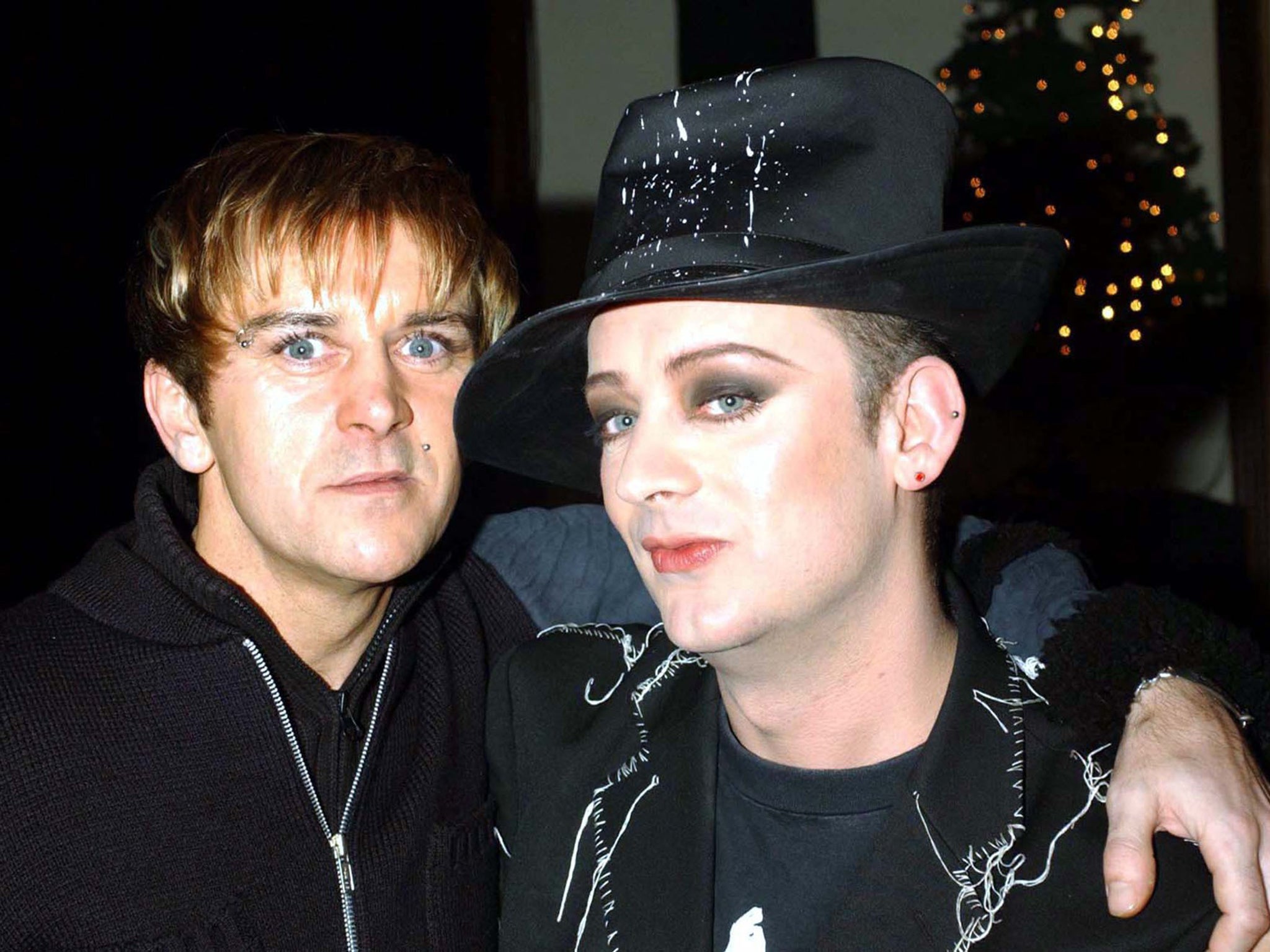Steve Strange: Lead singer with Visage and club owner who became the leading light of the 1980s New Romantic movement

Your support helps us to tell the story
From reproductive rights to climate change to Big Tech, The Independent is on the ground when the story is developing. Whether it's investigating the financials of Elon Musk's pro-Trump PAC or producing our latest documentary, 'The A Word', which shines a light on the American women fighting for reproductive rights, we know how important it is to parse out the facts from the messaging.
At such a critical moment in US history, we need reporters on the ground. Your donation allows us to keep sending journalists to speak to both sides of the story.
The Independent is trusted by Americans across the entire political spectrum. And unlike many other quality news outlets, we choose not to lock Americans out of our reporting and analysis with paywalls. We believe quality journalism should be available to everyone, paid for by those who can afford it.
Your support makes all the difference.A flamboyant figure with a self-destructive streak, Steve Strange was one of the prime movers behind the New Romantic movement which changed the shape, look and sound of the British music scene at the tail end of the 1970s and introduced several of the acts who dominated the charts around the world in the first half of the '80s.
Teaming up with the drummer-turned-DJ Rusty Egan to host so-called “David Bowie” nights at London clubs Billy’s in 1978 and the Blitz the following year, he became the infamous doorman with a policy so strict and exclusive he turned Mick Jagger away.
“I wanted creative-minded pioneers there who looked like a walking piece of art,” he said. “It was about showing your creative side, and about showing that you’d taken time and effort in what you had created. It was about classic style and being outrageous, but done with an element of taste.”
The bright young things Strange allowed to become Blitz kids included Boy George, later of Culture Club, but then one of the cloakroom attendants, Billy Idol, Bananarama, Bow Wow Wow and Spandau Ballet, as well as two-hit wonder Marilyn – another cloakroom attendant – and future members of Haysi Fantayzee, Animal Nightlife and Sigue Sigue Sputnik. Back in 1979, Spandau Ballet tailored their sound to reflect the electronic music of Kraftwerk, Telex and Yellow Magic Orchestra, non-UK artists favoured by Egan. Spandau Ballet played a private gig at Billy’s, establishing themselves as the New Romantic band par excellence, chased by every UK label, and in the Top Ten with the naggingly catchy ‘To Cut A Long Story Short” by November 1980.
At the same time, Visage, the synth-pop studio “supergroup” Strange and Egan had formed with Midge Ure and Billy Currie of Ultravox and Dave Formula and John McGeoch of Magazine, came good and released their second single, the eerie “Fade To Grey”. They too charted, in Britain and across continental Europe, where the track’s spoken French couplets gave a frisson of recognition and matched the po-faced sophistication beloved of its originators. Strange was the project’s frontman, the tormented Pierrot in the pop promo.
“The period I was into then was very Edwardian,” he said. “The white pancake make-up fitted in with that look, with the knickerbockers and bérets. We were on a very, very low budget. We decided we would experiment with the make-up coming to life as it was the best way to create something very visual on a cheap scale.”
But crucially, and this was the source of some bitterness, as he admitted in Blitzed!, his 2002 autobiography, he didn’t share in the songwriting royalties as the track was credited to Ure, Currie and Chris Payne; Ure penned its lyrics, and despite Strange’s claims to the contrary, suggested they use Brigitte Arens, Egan’s then Belgian girlfriend, to whisper coldly and mysteriously in French. Strange was rewarded as the co-writer of all their subsequent singles – including the Top 40 entries “Mind Of A Toy”, “Visage”, “The Damned Don’t Cry” and “Night Train” – and album tracks, though none proved as impactful or lasting as “Fade To Grey”, a radio recurrent the world over to this day.

The synth-pop outfit ground to a halt in the mid-’80s and Strange, who had also been the catalyst behind the transformation of another London venue, the Music Machine, into the Camden Palace – now Koko – struggled to overcome problems that include a heroin habit that at one point cost him £150 a day. By the late ‘90s he was back in Wales and, by his own admission, acting “very bizarrely.” He spent six weeks in a psychiatric hospital, was arrested for shoplifting and given a suspended sentence. “I don’t know whether it was cry for help,” he told The Independent in 2000, blaming an over-reliance on Prozac, though he seemed comfortable with his avowed bisexuality.
In 2002 he participated in one of the Here And Now nostalgia tours featuring his ’80s contemporaries, before launching a new version of Visage with whom he recorded a studio album in 2013. TV producers booked him to appear on programmes like After They Were Famous, Pop Goes The Band and Loose Women. In 2008 he appeared in Ashes To Ashes, the BBC time travel drama series named after the Bowie track.
This was a clever nod to Strange’s appearance in the original video in 1980, an occasion the Visage frontman never tired of recalling. “David Bowie came to the club and hand-picked me. I was totally in awe,” he said. “I thought we would be going somewhere really exotic. We ended up on Southend beach! He closed the beach, so at least that was glamorous. ”
Born Steven John Harrington in 1959 in Newbridge, he was drawn to the capital after seeing the Sex Pistols and Stranglers and was soon working for Pistols manager Malcolm McLaren while squatting with Stranglers bassist Jean-Jacques Burnel. A postman nicknamed him Steve Strange, an improvement on the Steve Brady alias he had been using while trying to whip up controversy with the wannabe punk rock group The Moors Murderers. The tasteless band briefly fooled The Sunday Mirror and the music weekly Sounds into giving them coverage in 1977 but never got off the ground.

Instead he fell in with Egan and Ure who had joined the former Sex Pistols bassist Glen Matlock and the guitarist Steve New to form the Rich Kids. In 1979 the embryonic Visage recorded a cover of the Zager and Evans song “In The Year 2525” which attracted the attention of the Stranglers producer Martin Rushent. Rushent bankrolled the recording of further tracks and leased the one-off single “Tar” to Radar Records. But the Visage album sat on the shelves for a year until Polydor offered them a deal at the end of 1980.
Not the most reliable of interviewees, Strange was prone to exaggeration and self-aggrandising, yet had some justification when talking up his dual role as Visage frontman and catalyst for a generation of new British talent. “In books, people put me down as an icon of the Eighties, a legend that created a movement,” he said. “Some people poke fun at it.”
Leaving aside Spandau Ballet, Culture Club and Duran Duran, the Blitz kids who changed popular culture and fashion include figures like Robert Elms and Dylan Jones and the dancer and choreographer Michael Clark. Strange died of a heart attack in his sleep on holiday in Egypt.
Steven John Harrington (Steve Strange), musician and club owner: born Newbridge, Monmouthshire 28 May 1959; died Sharm el-Sheikh, Egypt 12 February 2015.
Join our commenting forum
Join thought-provoking conversations, follow other Independent readers and see their replies
Comments